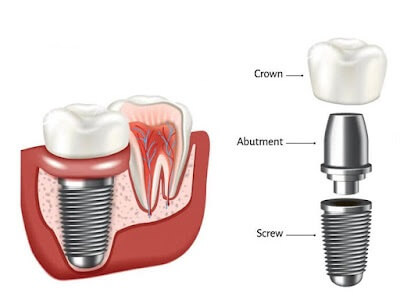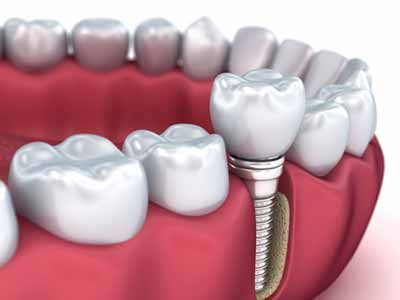


It is essential to consult with a qualified dentist or oral surgeon to determine if dental implants are the right option for individual needs, taking into consideration factors such as oral health, bone density, and personal preferences.
Improved Functionality: Dental implants provide a permanent and stable solution for replacing missing teeth. They restore the ability to bite, chew, and speak with ease, allowing individuals to enjoy their favorite foods and speak confidently. Unlike removable dentures, implants are fixed in place, eliminating the discomfort and inconvenience associated with traditional tooth replacement options.
Enhanced Aesthetics: Dental implants are designed to mimic the appearance of natural teeth. They blend seamlessly with the remaining teeth, creating a natural-looking smile. Implants also help maintain the facial structure by preventing bone loss, which can occur when teeth are missing. This results in a more youthful and aesthetically pleasing appearance.
Long-Term Durability: With proper care and maintenance, dental implants can last a lifetime. They are made of biocompatible materials such as titanium that integrate with the jawbone, providing a strong and durable foundation for replacement teeth. Implants are resistant to decay and do not require special cleaning or adhesives, making them a convenient and long-lasting solution.
Cost: Dental implants tend to be more expensive than other tooth replacement options such as dentures or bridges. The cost includes the surgical procedure, materials, and custom-made crowns. However, considering their longevity and benefits, many individuals find that the long-term advantages of dental implants outweigh the initial cost.
Surgical Procedure: The placement of dental implants requires a surgical procedure, which may cause discomfort and involve a recovery period. While advancements in implant dentistry have made the process more efficient and less invasive, it still involves surgery and the associated risks. It is important for individuals to discuss the procedure, potential complications, and post-operative care with their dentist.
Time Commitment: Dental implant treatment typically takes several months to complete. This includes the healing period after implant placement and the subsequent steps of attaching the abutment and crown. Patients need to have patience and commitment throughout the treatment process, understanding that the long-term benefits of dental implants are worth the time investment.
As we mentioned at the beginning; It is essential to consult with a qualified dentist or oral surgeon to determine if dental implants are the right option for individual needs, taking into consideration factors such as oral health, bone density, and personal preferences.
Copyright @2023, All Rights Reserved By Dental Implant Turkey.